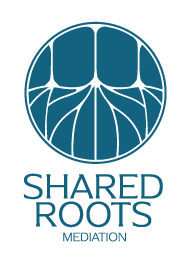Empowering Women: Reimagining Justice and Healing
Happy International Women’s Day! This global celebration honors women’s achievements and calls for us to imagine a gender-equal world, free of bias and discrimination. The IWD campaign theme for 2024 is ‘Inspire Inclusion.’ As highlighted by the official website, “When we inspire others to understand and value women's inclusion, we forge a better world.”
Too often, women who experience trauma and violence are excluded from efforts to seek justice and accountability for this harm. These limited options, whether through the criminal legal system, a protective order, a workplace grievance process, or similar, in small and large ways, remove the agency from the survivor. Women who suffer sexual harm in particular are given few options for how to respond to this harm, often presented with pursuing accountability solely through formal legal or institutional systems. Specifically, in the criminal legal system, where nearly all survivors are directed, the survivor is relegated to the role of witness; all they can do is participate in the process as determined by the official actors of the criminal legal system. Survivors can no more unilaterally “press charges” than they can apprehend and arrest the person who harmed them. While they may be asked what they want to do and what they want to happen, there is no recourse if these wishes and desires are ignored.
Contradicting the limiting norms of these formal mechanisms, feminist psychologist Judith Hermann advises that the survivor must be “author and arbiter of her own recovery…. No intervention that takes power away from the survivor can possibly foster her recovery, no matter how much it appears to be in her immediate best interest.” To allow this agency, though, we must provide them with more than the current options available in our limited legal system.
We at Shared Roots Mediation were inspired to start our practice by recognizing the need for women to be included in determining their own justice and healing journeys. By providing restorative and transformative justice options, Shared Roots seeks to empower women to ask, “How do I want to define justice and healing for myself?” We strive to put the power of creation into the survivor’s hands by moving away from society’s desire to assign blame and find fault and toward engaging the survivor directly in their own healing and justice process.
For women who have experienced violence and trauma, restorative and transformative justice can be deeply empowering. It allows them to shape what their personal definition of justice looks like, rather than relying solely on the definition handed to them through the legal system. The possibilities for healing are only limited by the survivor’s wishes and definitions of recovery for themselves.
Through our work, Shared Roots Mediation joins the movement for gender equality by including women in reimagining justice for survivors of sexual harm. When women are the leaders of their own healing journeys, the potential for individual and societal transformation is limitless. This International Women’s Day, join us in building a world where all women are valued, respected, and empowered to shape their own futures.

